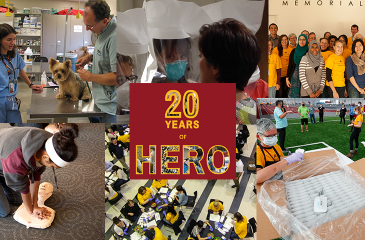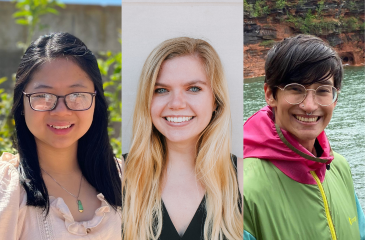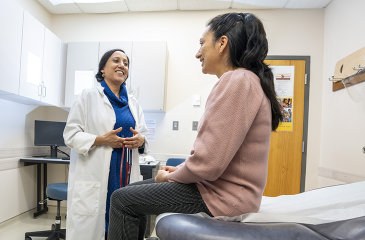In 2018, hundreds of men, women, children, teens, the disabled, and elders camped on public property for over six months because they had no stable housing and were out of options. What was later coined the Franklin Hiawatha Encampment (or the “Wall”) became a trusted space for many, and a site for those who suffered from substance use disorder. Heroin overdoses were a daily occurrence and fatal overdoses claimed at least three lives at the Wall. Many people in the encampment identified as American Indian and had limited or no access to health care services.
“The Community-University Health Care Center is in the heart of the Phillips neighborhood, a historic port of entry for immigrants and refugees and as an urban American Indian cultural corridor,” says CEO Colleen McDonald Diouf. “Last year, Minnesota experienced one of the most visible collisions of these wicked problems [homelessness, mental illness, and opioid use disorder] in CUHCC's literal backyard— the Hiawatha encampment.”
The Wilder Foundation's most recent report on homelessness documented a 4% increase in the chronic homeless population. Oftentimes, families are forced to separate to gain access to housing for children, while extended family members who take care of the children are excluded. CUHCC proposes convening community partners, influencers and community members/patients with lived experiences, to create tangible action oriented goals that will break down housing and addiction policy barriers, improve service/care delivery, design optimal healing spaces, and strengthen existing partnerships and form new connections.
Research shows that when housing, mental health, and substance use disorder services are combined in a non-punitive environment, health is improved, relapse is less frequent and long-term sobriety and stability are more common. Supportive housing includes on-site health, mental health, and social services— a continuum of care that can include substance use disorder treatment, legal services, parenting support, job coaching, and peer support.
“Supportive housing needs to be developed to meet the unique cultural needs of American Indians, African Americans and other disenfranchised ethnic/racial groups to feel welcoming and supportive of positive cultural identity and practices.”
Traditional supportive housing can prove expensive and difficult due to multi-year time lag for implementation and limited scalability. To address these concerns, CUHCC will explore alternative solutions that combine existing health care services with affordable-rate housing. CUHCC currently provides an array of medical services including mental health, care coordination, medication-assisted treatment for opioid use disorder, and more.
Funding from the Office of Academic Clinical Affairs BOLD Ideas grant program will help CUHCC gather and ennoble community influencers, those with lived experiences, and University departments, to envision and plan a compendium of environmental and policy approaches to address health care, housing and optimal healing for individuals and families.



